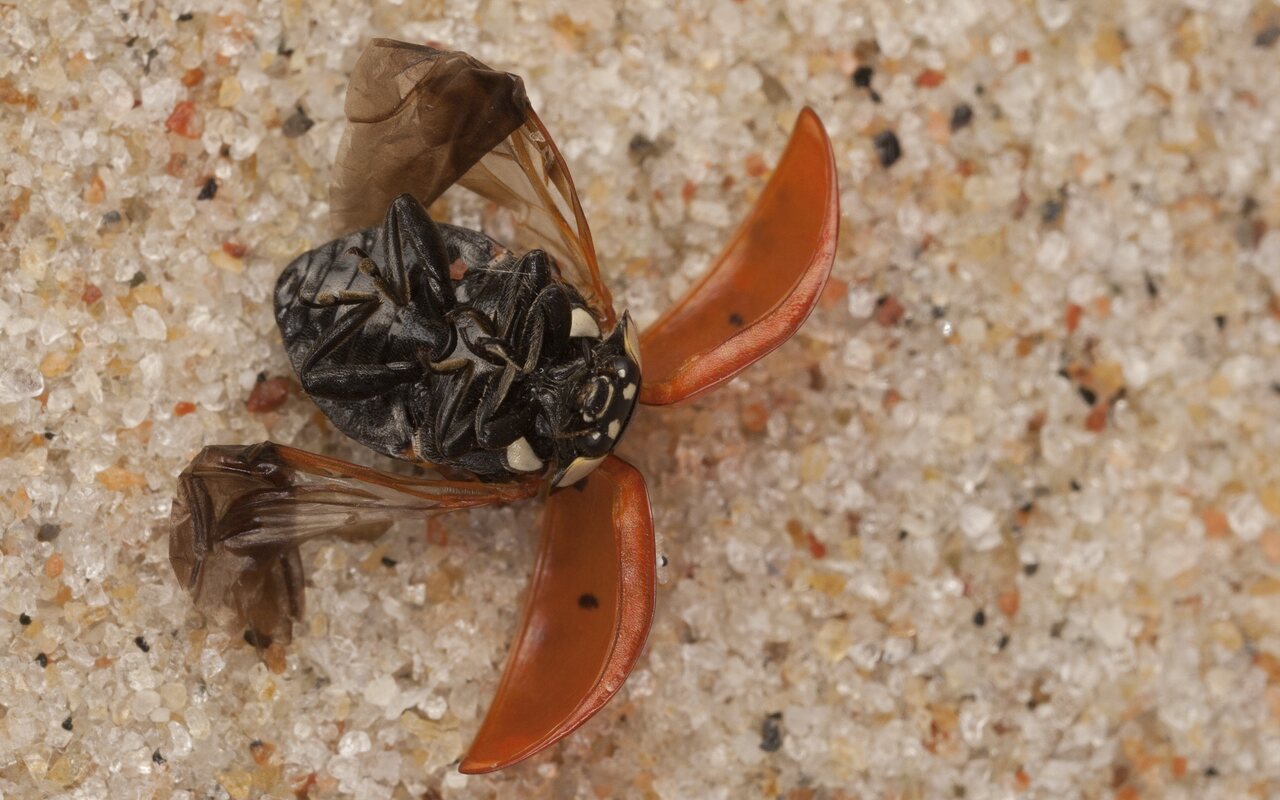
Coccinella septempunctata · septyntaškė boružė
underside, ventral side - pilvas
- seven-spot ladybird, seven-spotted ladybug
- Siebenpunkt-Marienkäfer, Siebenpunkt
- septyntaškė boružė
- septiņpunktu mārīte
- biedronka siedmiokropka, boża krówka
https://en.wikipedia.org/wiki/Coccinella_septempunctata It is native to the Old World and is the most common ladybird in Europe. The beetle is also found in North America, Central and Eastern Asia and regions with a temperate climate.[citation needed] Its elytra are of a red colour, but each punctuated with three black spots, with one further spot being spread over the junction of the two, making a total of seven spots.
Although C. septempunctata larvae and adults mainly eat aphids, they also feed on Thysanoptera, Aleyrodidae, on the larvae of Psyllidae and Cicadellidae, and on eggs and larvae of some beetles and butterflies. They breed one or two generations per year. Adults overwinter in ground litter in parks, gardens and forest edges and under tree bark and rocks.
Septyntaškė boružė panaši į daug retesnę boružių rūšį Coccinella magnifica, kuri yra panašaus dydžio ir spalvų, bei ant antsparnių turi taip pat išsidėsčiusias 7 juodas dėmes. Šios dvi rūšys atskiriamos pagal baltas dėmes apatinėje kūno pusėje po šlaunimis: Coccinella magnifica turi 4 baltas dėmes, o C. septempunctata tik dvi. Taip pat C. septempunctata antsparnių juodos dėmės smulkesnės.
‥
0 comments
Add a comment